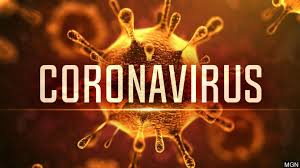With coronavirus Covid-19 being the talk of the day, much is being said about staying as safe and healthy as possible. Eating immune-boosting foods is key to living a healthy lifestyle. That’s because, with every bite, you’re helping your body fight off viruses, infections, and diseases.
Ofcourse, hand-washing remains your best defense against picking up viruses, and sleep is a crucial component of a strong defense too.
It is believed that a good balance of right food can help you stay healthy. So, what you eat does play a role in your ability to ward off colds and flu. Though it doesn’t boil down to just one or two foods, the nutrients and other compounds found in your daily diet have an impact on how weak or strong your immunity is. Here are some eating habits that can help you stay fit and immune:
- Eat fruits & vegetables every day: Produce contains key vitamins involved in the immune system.
- Vitamin C in foods like strawberries, bell peppers, broccoli, and citrus, helps immune system cells function, including phagocytes (the kind that engulfs potentially harmful particles).
- Vitamin A helps keep tissues in the mouth, intestines, and respiratory tract healthy and is found in sweet potatoes, spinach, carrots, and cantaloupe.
- Vitamin E, which is found in nuts, especially almonds, is another cold-fighting vitamin that doesn’t get the attention it should. If you eat a half cup of them, about 46 almonds total, you will have 100% of your daily recommendation of vitamin E. Remember that eating the actual fruit or veggie is better than popping single-vitamin supplements since it’s likely that all the components in the food interact to offer protection.
- Get plenty of protein: Getting too little protein can weaken your immune system. Protein-rich foods supply the amino acids you need to build essential proteins in the body, including antibodies. Animal foods like beef and pork also contain zinc, a mineral that your body uses to make t-cells (you can find zinc in cashews and chickpeas too). Asian Vegetarians can include a protein like dals, pulses (sprouted), paneer, curd, nuts and seeds.
- Include fermented foods: These are foods that are naturally preserved by bacteria, and they’re good for the “microbiome”. That’s the name for the trillions of bacteria that live in your gut, where a lot of cells involved in immunity actually reside. Fermented foods like yogurt (look for the term “live and active cultures” on the label), kefir, sauerkraut, miso, and kimchi help beneficial bacteria flourish in the gut, leaving less room for harmful bugs.
- Season your meals: The culinary cabinet has a variety of spices that have significant antibacterial and anti-fungal advantages — such as ginger, garlic, cloves, cinnamon, turmeric and cumin. They have all been researched for intriguing capabilities as anti-microbials, anti-inflammatories, and cell-protecting antioxidants. They’re not magic cure-alls, and popping them in the form of pills isn’t the same as eating the real deal. But adding flavor to foods with these ingredients means you’re getting even more beneficial compounds in the meals you eat every day.
Talk to a provider at ECFP if you have any questions regarding your immunity.



